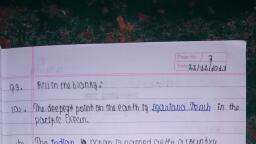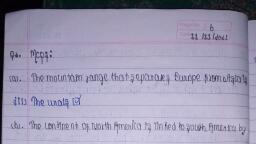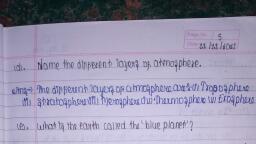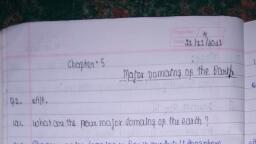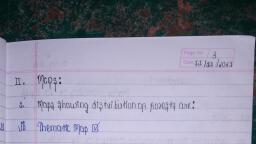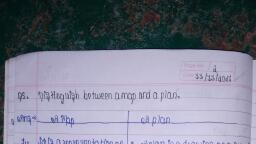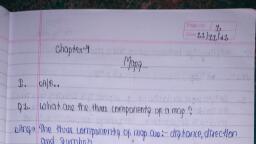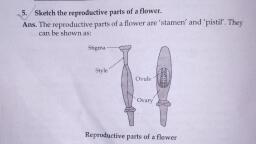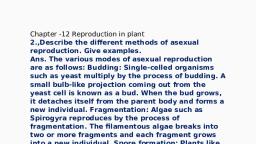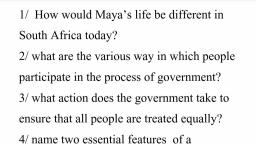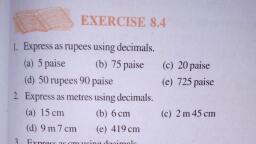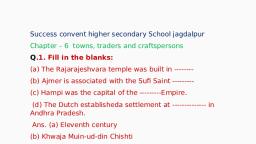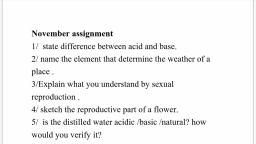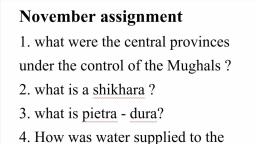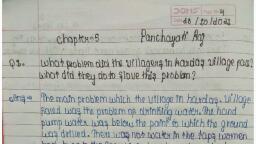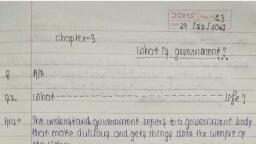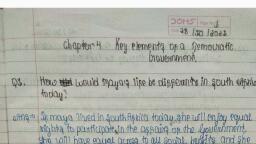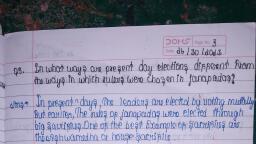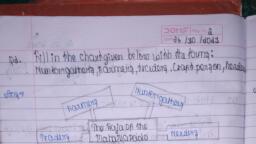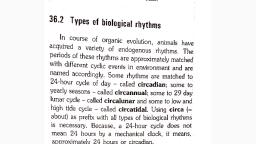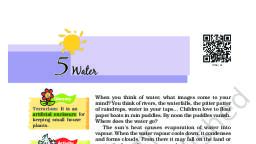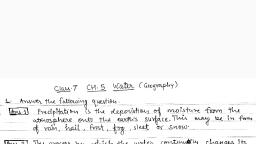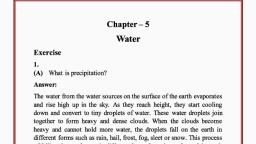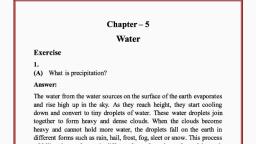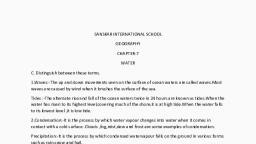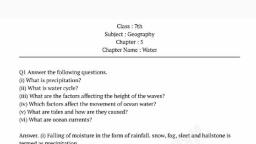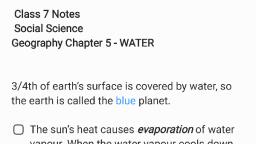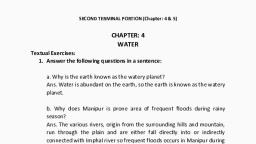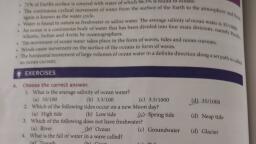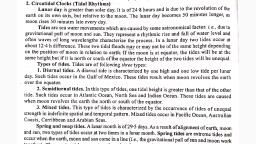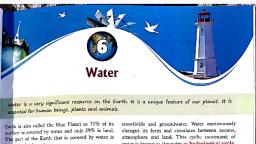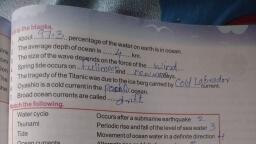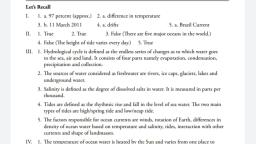Page 1 :
Success convent higher secondary School jagdalpur, Chapter -5 ,water, Question 1./ answer the following question:, 1. What is precipitation?, Answer - Precipitation is the deposition of moisture from the atmosphere onto the earth's surface. This may be in form of rain , hail , frost , fog , sleet or snow ., 2. What is water cycle?, Answer-The process by which water continuously changes its form and circulates between oceans, atmosphere and land is known as the water cycle., 3. What are the factor affecting the height of the Waves?, Answer -Factors affecting the height of the waves :, Speed off wind ., Duration of wind, Distance the wind blows over water, > Earthquake Volcanic Eruption, Underwater Landslides ., 4. Which factor affect the movement of ocean water?, Answer -Factors affecting the movement of ocean water : Temperature Earthquake or volcanic eruption Gravitational pull of the sun and the moon . Underwater landslides Rotation of the earth ., 5. what are Tides and how are they caused?, Answer - The rhythmic rise and fall of ocean water twice a day is called a tide . Tides are caused due to the gravitational pull exerted by the sun and the moon on the earth's surface., 6. what are ocean currents?, Answer - Ocean currents are streams of water flowing constantly on the ocean surface in definite directions., Question 2: Give reasons., Ocean water is salty., Answer - Ocean water is salty because it contains large amount of dissolved salts. Most of the salt is sodium chloride or the common table salt that we eat., The quality of water is deteriorating ., Answer -The quality of water is deteriorating because :, > Garbage we throw in the river ., >Chemicals polluted water from industries ., > Remains of the harmful insecticides and pest resistant's flowing in from the fields ., > Unburnt or half burnt corpses of men and animals thrown in water bodies ., Q.3 . Tick the correct answer ., (i) The process by which water continuously changes its form and circulates between oceans, atmosphere and land:, (a) Water cycle (b) Tides (c) Ocean currents, Ans. (a) Water cycle, (ii) Generally, the warm ocean currents originate near: (a) Poles (b) Equator (c) None of these, Ans. (b) Equator, (iii) The rythmic rise and fall of ocean water twice in a day is called:, Tide (b) Ocean current (c) Wave, Ans. (a) Tide, Q.4. Match the following :, Column A. Column B, ( i ) Caspian Sea (a) Largest lake, (ii ) Tide Periodic rise and fall, Of water, (iii ) Tsunami (c) Strong seismic waves, (iv )Ocean current (d) Streams of water moving, along definite paths, (e) Water cycle, Ans . ( i ) ( a ) ; ( ii ) ( b ) ; ( iii ) ( c ) ; ( iv ) ( d ) Q.5.


